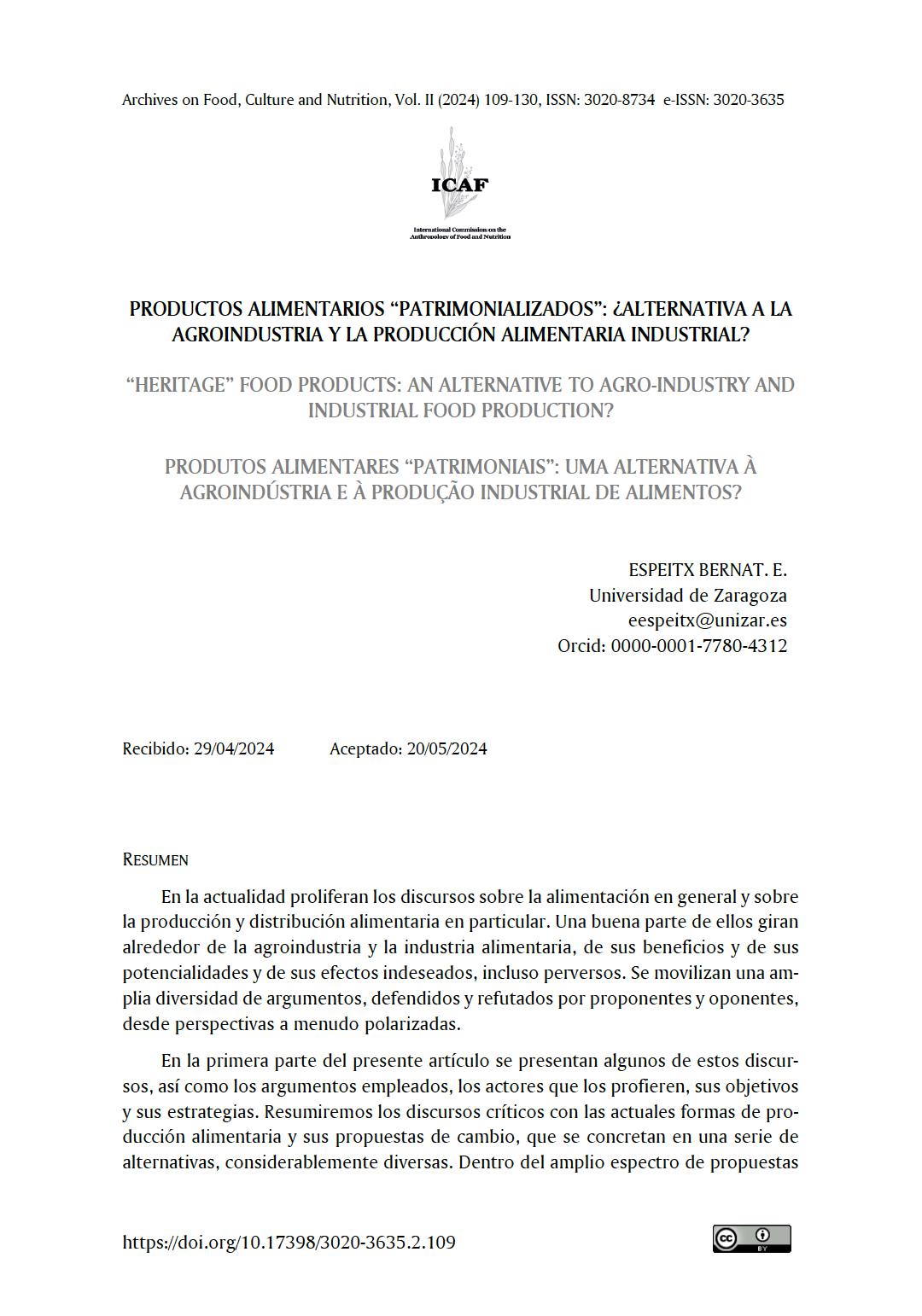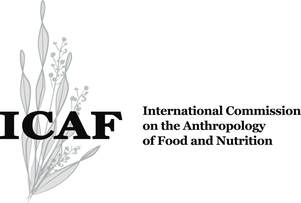Produtos alimentares "patrimoniais"
Uma alternativa à agroindústria e à produção industrial de alimentos?
DOI:
https://doi.org/10.17398/3020-3635.2.109Palavras-chave:
Património, alimentação, consumidores, produtos locaisResumo
Atualmente, proliferam os discursos sobre a alimentação e, em particular, sobre a produção e distribuição de alimentos. Uma boa parte deles gira em torno do agronegócio e da indústria alimentar, dos seus benefícios e potencialidades e dos seus efeitos indesejados, ou mesmo perversos. Uma grande diversidade de argumentos é mobilizada, defendida e refutada por proponentes e oponentes, a partir de perspectivas muitas vezes polarizadas.
Na primeira parte deste artigo, são apresentados alguns desses discursos, bem como os argumentos utilizados, os actores que os proferem, os seus objectivos e as suas estratégias. Faremos um breve resumo dos discursos críticos das actuais formas de produção alimentar e das suas propostas de mudança, que assumem a forma de uma série de alternativas, consideravelmente diferentes umas das outras. Dentro do amplo espetro de propostas de mudança, que se distribuem num continuum que vai desde a transformação radical das formas de produção alimentar até à ocupação de pequenos nichos complementares a esta, encontram-se as estratégias de patrimonialização dos produtos alimentares. A segunda parte incide sobre este processo de patrimonialização, os discursos que mobiliza, os agentes que intervêm e as estratégias que são utilizadas. A terceira parte centra-se no papel dos cidadãos e dos consumidores nesta patrimonialização, e nos significados que os produtos alimentares patrimonializados adoptam para eles, bem como nos usos que lhes são dados e no lugar que ocupam nos padrões alimentares.
Downloads

Publicado
Edição
Secção
Licença
Os editores das revistas devem estar atentos às questões de propriedade intelectual e trabalhar em conjunto com seu editor para gerir possíveis infrações das leis e convenções sobre propriedade intelectual. É importante destacar que as leis de propriedade intelectual da jurisdição local são soberanas.
Todo o conteúdo publicado em Archives in Food, Culture and Nutrition (AFOCUN) está sob uma licença Creative Commons Atribuição 4.0 Internacional (CC BY 4.0) de acesso aberto. Esta licença permite que outros distribuam, remixem, adaptem e se baseiem no trabalho, inclusive para fins comerciais, desde que seja dado o crédito adequado ao autor original. Os autores mantêm os direitos autorais e concedem à revista o direito de primeira publicação, registrando o trabalho sob a licença de atribuição correspondente. Isso permite que terceiros utilizem os conteúdos publicados, desde que a autoria do trabalho e a publicação original nesta revista sejam reconhecidas.
Para mais informações sobre os termos da licença, consulte o link oficial: Creative Commons Atribuição 4.0 Internacional.
Archives in Food, Culture and Nutrition respeita os direitos intelectuais e patrimoniais (copyright) dos trabalhos publicados e permite que os autores façam uso livre de seus próprios trabalhos publicados, sempre dentro dos limites da legislação vigente.









